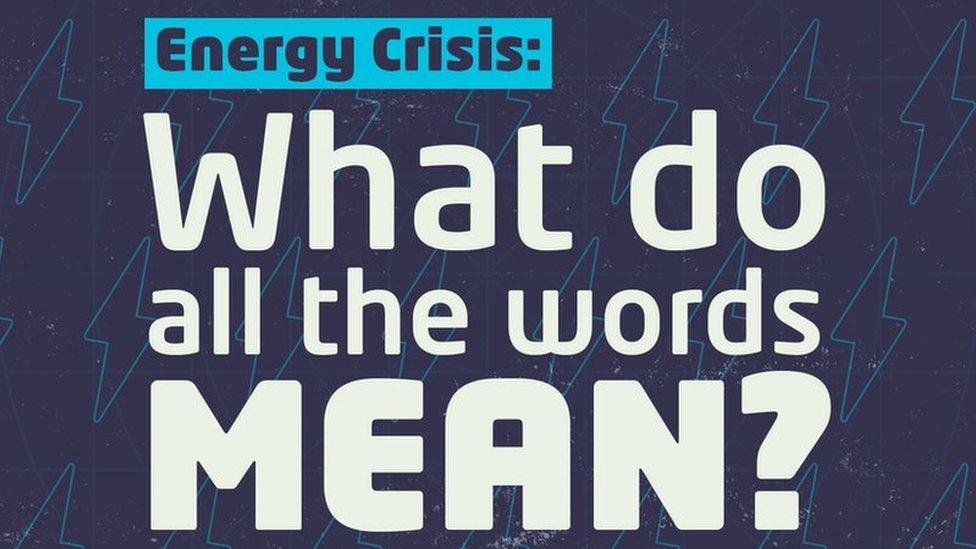Mini-budget: Chancellor cuts tax but what does that mean?
- Published
- comments
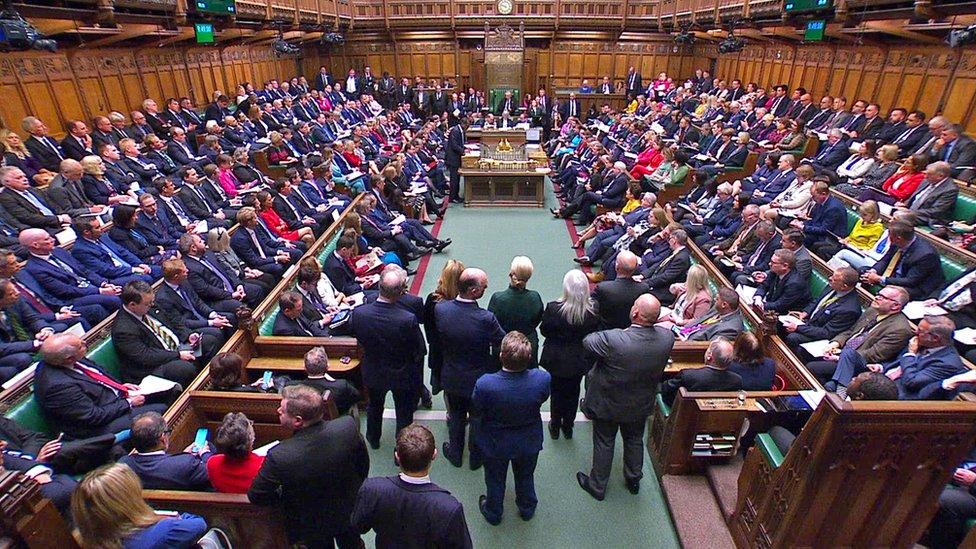
The Chancellor Kwasi Kwarteng explained the government's plans in the House of Commons on Friday
The new chancellor Kwasi Kwarteng has set out the government's spending plans for the next few months.
Mr Kwarteng was given the role of chancellor when Liz Truss became prime minister and his new job means he's responsible for how the UK government spends money.
Once a year, the government writes a document called a budget which explains how it will spend its money, but this 'mini' one has been announced to help tackle the cost of living crisis.
Mr Kwarteng said that plans to help households and businesses with rising energy prices will cost up to £60 billion over six months.
To afford this, the government plans to borrow money rather than raise it through tax.
Mini-budget: What's been announced?
Adults pay tax on money they earn, and on things you buy, like food and drink.
Taxes are one way the government can raise money to pay for things.
The chancellor's plan revealed some of the biggest tax cuts in 50 years.
Some people are happy with what the government are doing, and say that making people pay less tax will help prices go down.
People who disagree say they are worried about how the governments borrowing will be paid for.
Cutting taxes
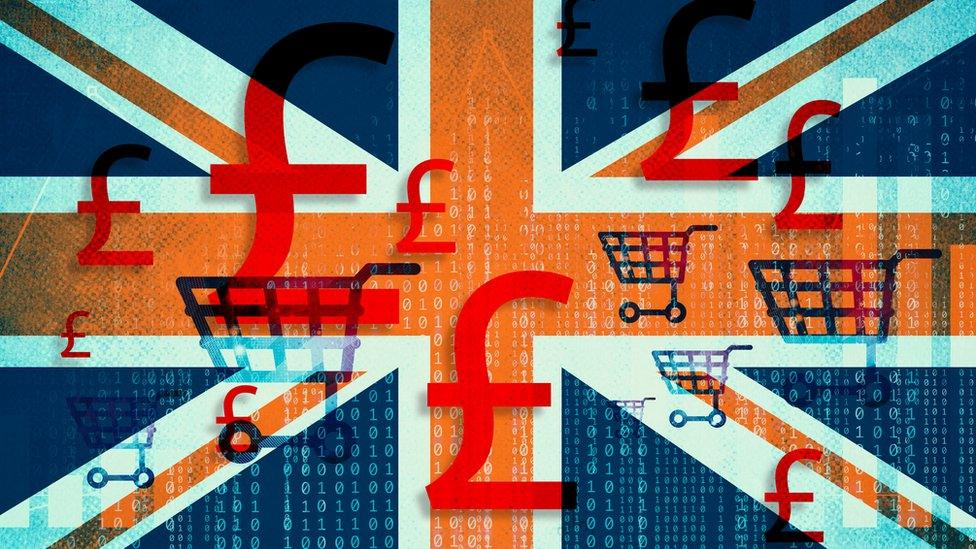
Adults pay tax on money they earn, and on things you buy, like food and drink.
Taxes help pay for things like schools and the health service.
But the government hopes that by cutting taxes people will have more money to spend which they say is good for the economy.
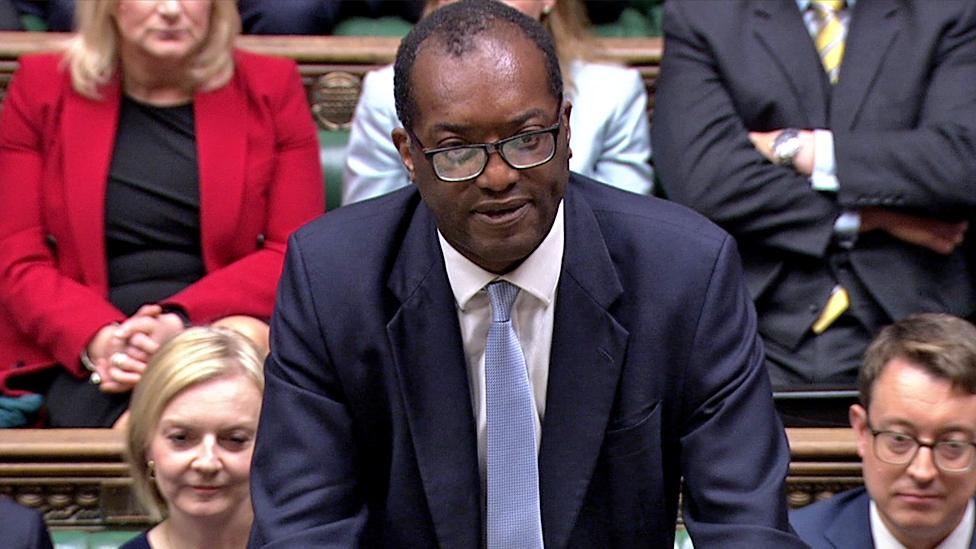
The Chancellor Kwasi Kwarteng said cutting taxes would be good for the economy
However, the opposition Labour Party criticised the plans, saying that the amount of borrowed money was higher than it needed to be and would have to be paid back "by current and future taxpayers" eventually.
Borrowing money is seen as risky at the moment because interest rates are high, meaning you owe and have to pay back much more than was borrowed in the first place.
Income tax
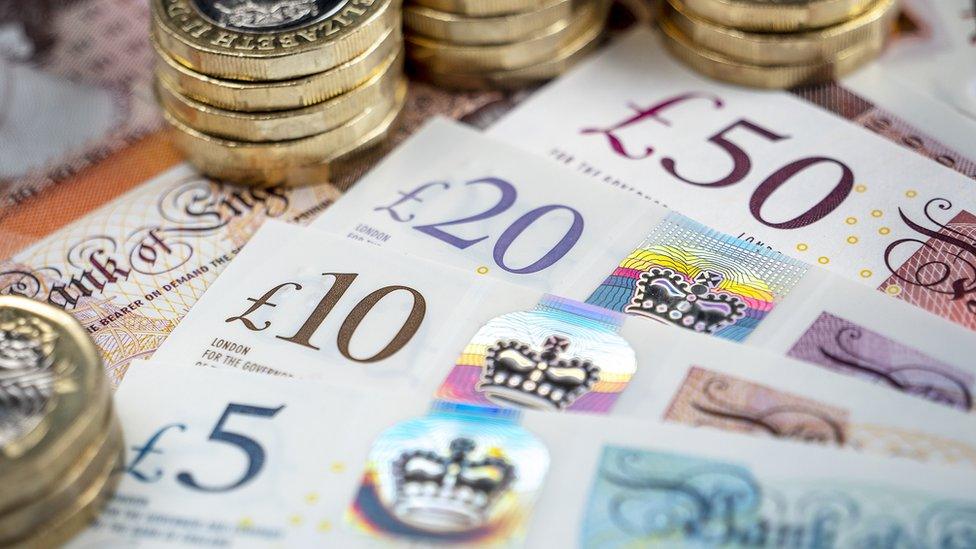
Everyone in the UK who earns money has to pay some of that money to the government in the form of income tax.
Currently adults in England, Wales and Northern Ireland who earn between £12,571 and £50,270 a year see 20% of that money go to the government.
Kwasi Kwarteng says that will now drop to 19% from April next year.
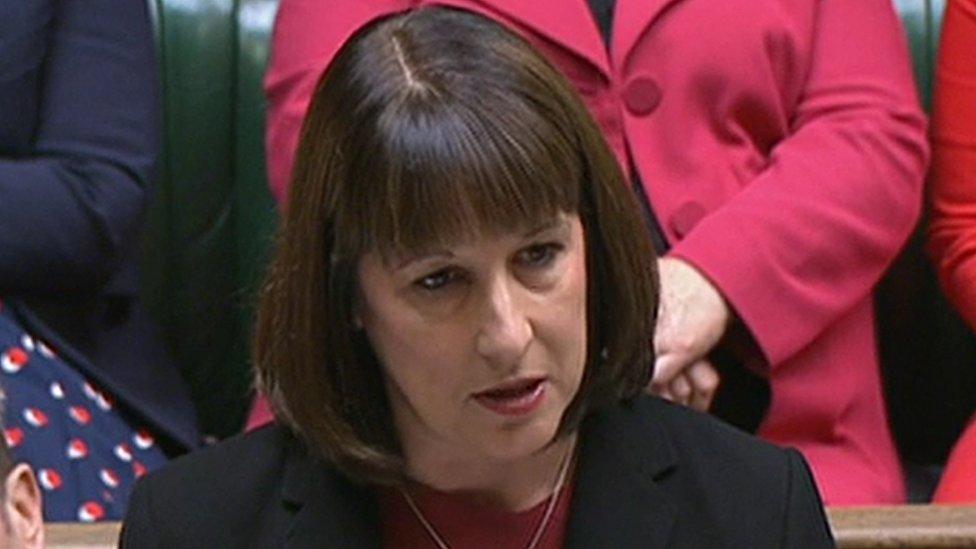
Shadow Chancellor Rachel Reeves said the mini-budget would "reward the already wealthy"
Typically those who earn more pay more in income tax. However the chancellor revealed that a 45% rate of income tax for the highest earners will also be stopped.
Under the new plans, from next year those earning over £50,270 a year will see the same level of income tax (40%) as those earning over £150,000 a year.
Some say this is unfair and benefits the rich.
"The Chancellor has made clear today what his priorities are. Not a plan for growth, a plan to reward the already wealthy." Said Labour's shadow Chancellor Rachel Reeves.
(Income tax is different in Scotland, where the basic rate is 21% taxed from an adult's yearly salary and the rate for the highest earners remains at 46%.)
National Insurance
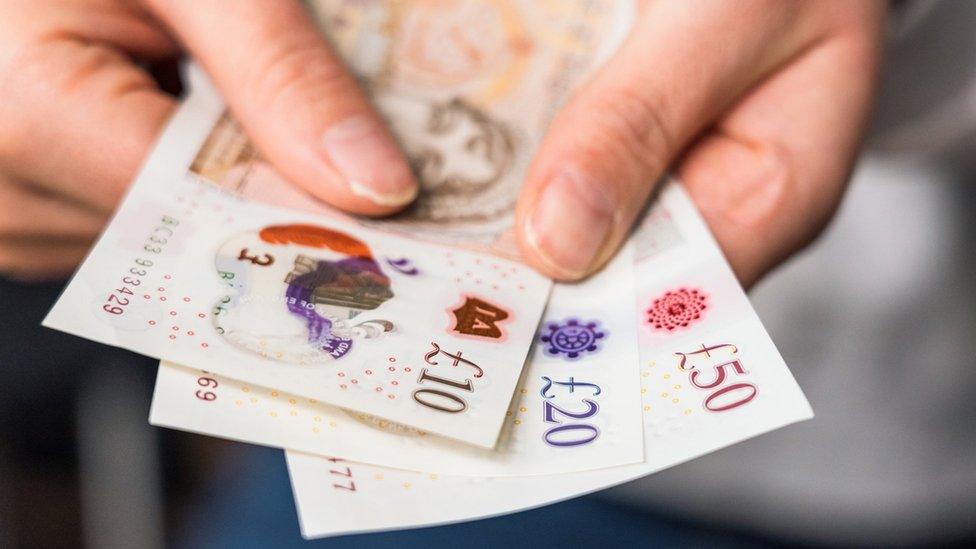
Similar to income tax, National Insurance comes from money adults make from work and the amount taxed depends on how much they earn.
The government uses this money to pay for things like the National Health Service (NHS).
Since April, adults have been paying more in National Insurance to help the NHS recover from the coronavirus pandemic and to raise money for health and social care.
The increase was introduced by ex-Chancellor Rishi Sunak, but during the Conservative Party leadership race, Liz Truss promised to change those plans if she became prime minister.
On Friday the government said the decision to reverse the rise in National Insurance will save nearly 28 million people an average of £330 per year.
But, because National Insurance payments are based on how much somebody earns, those on higher salaries will save more.
For example, somebody earning £20,000 will save about £93 a year, and somebody earning £100,000 will save £1,093, compared to now.
Benefits
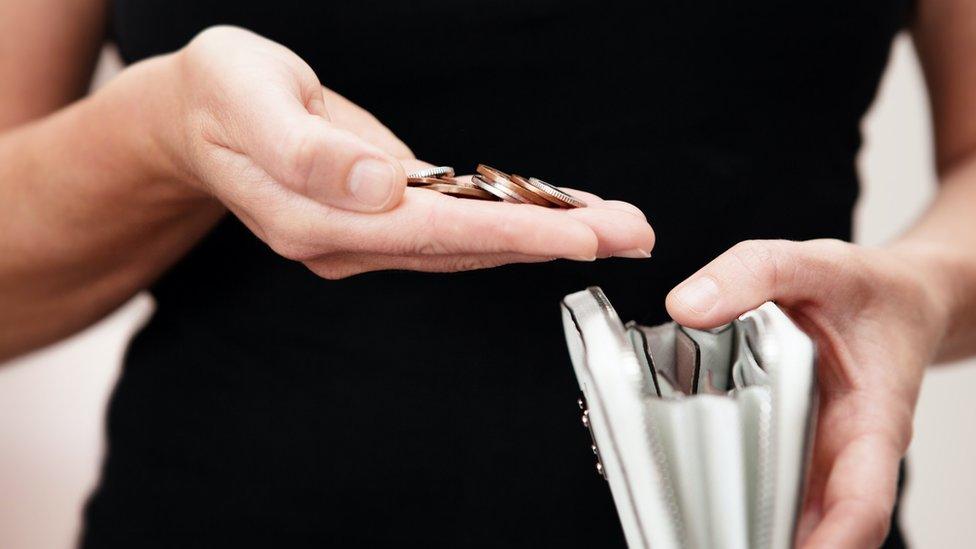
Adults on benefits - such as Universal Credit - should expect a rise in what they receive.
Universal Credit is a payment given by the government to people who don't earn a lot of money or don't have a job.
The money is used to help with living costs such as bills, food or childcare.
The rise in Universal Credit is because of inflation, which is a change in the value of things - meaning things like fuel for cars and food cost more.
That rise will not come until April and many charities say families need it sooner.
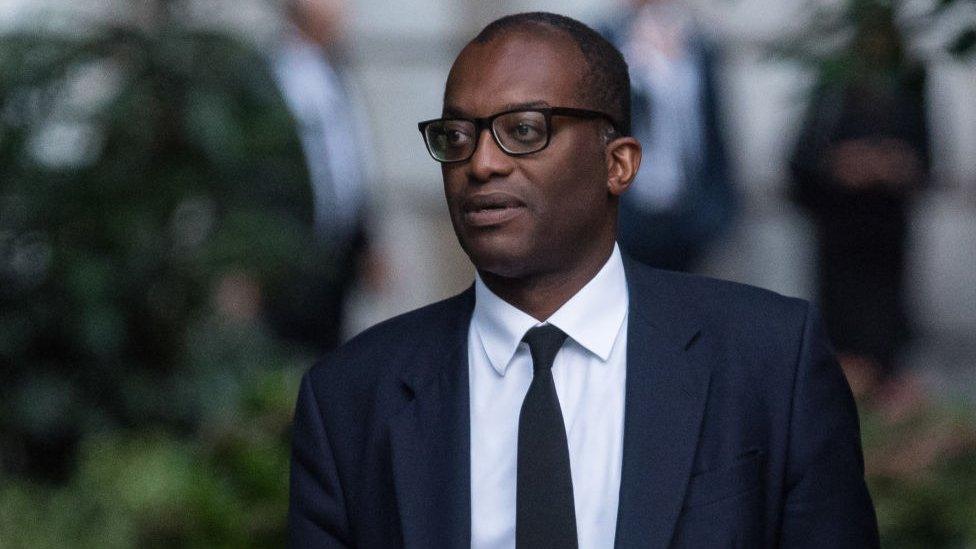
The chancellor also announced a plan to cut benefits for those who they say are not trying hard enough to find work.
He said that would mean 120,000 more people on universal credit would need to "take active steps to seek more and better-paid work, or face having their benefits reduced".
Energy costs
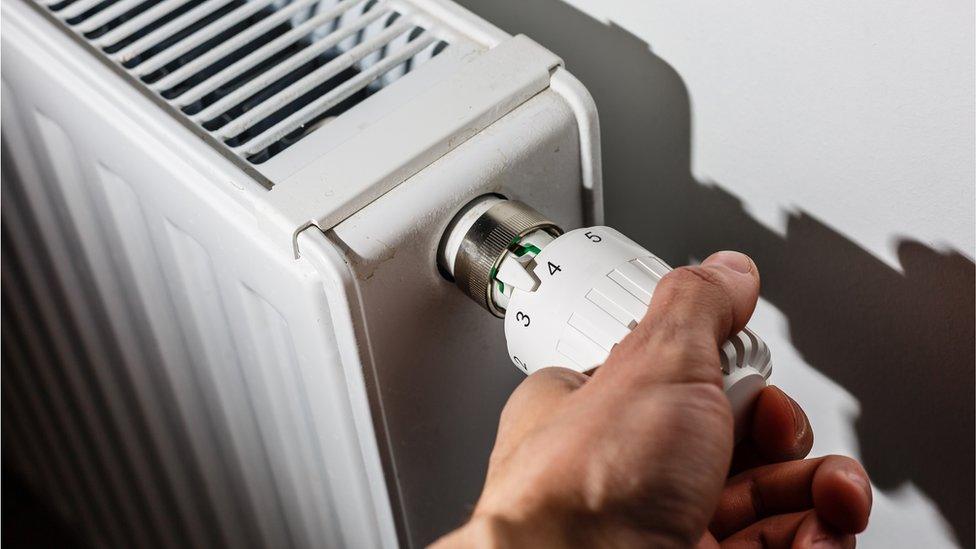
An Energy Price Cap had already been announced two weeks ago. Prime Minister Liz Truss said that the average price for a household energy bill won't go over £2,500 for the next two years.
The average energy bill was meant to go up by over £1,000, but it will now only go up by around £500 instead.
And all UK households will be given a £400 discount on their fuel bills from October.
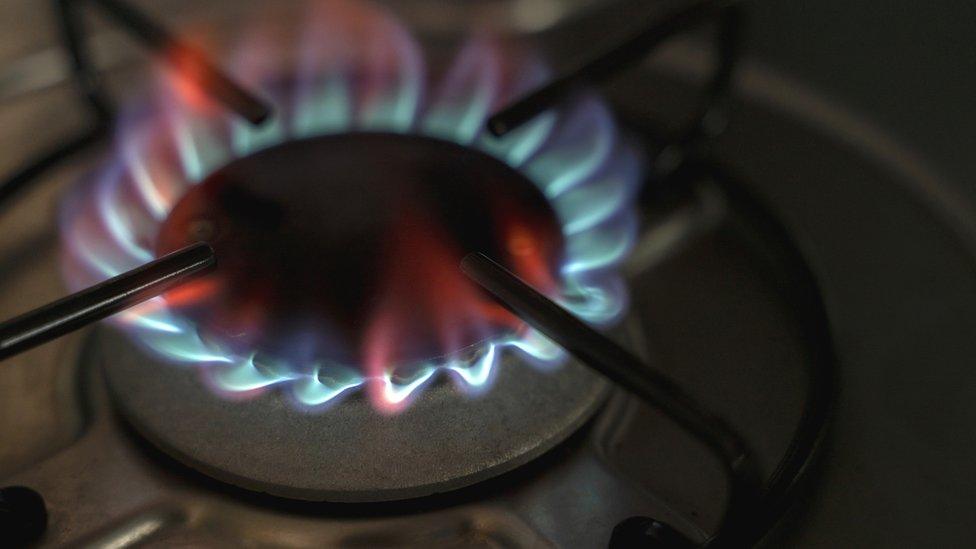
However there has been criticism that the government isn't taxing energy suppliers who have seen huge profits.
The Liberal Democrat party said the government's plan "will leave families suffering from soaring prices while banks and oil and gas companies rake in huge profits".
Mr Kwarteng told MPs he was fulfilling new Prime Minister Liz Truss's promise as prime minister to run a "tax-cutting government".
- Published8 September 2022
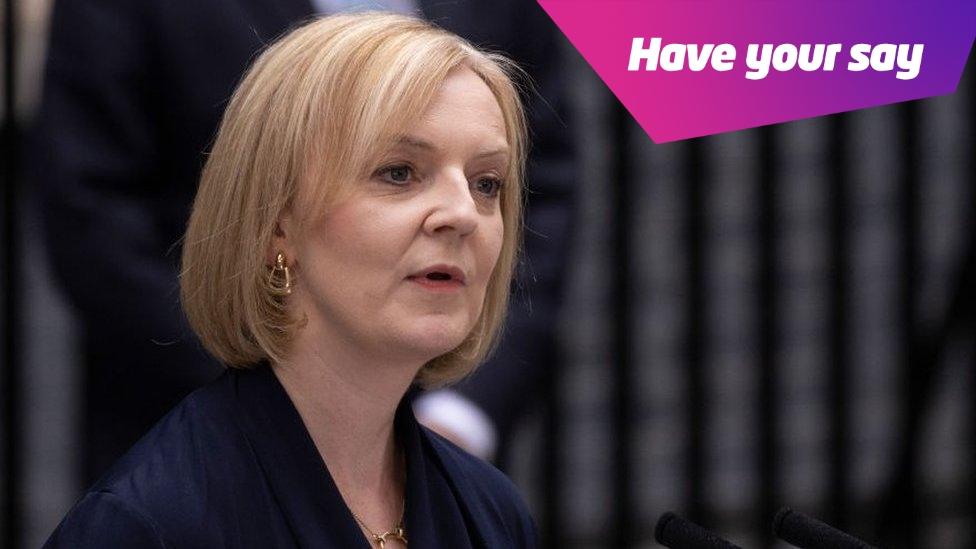
- Published26 May 2023
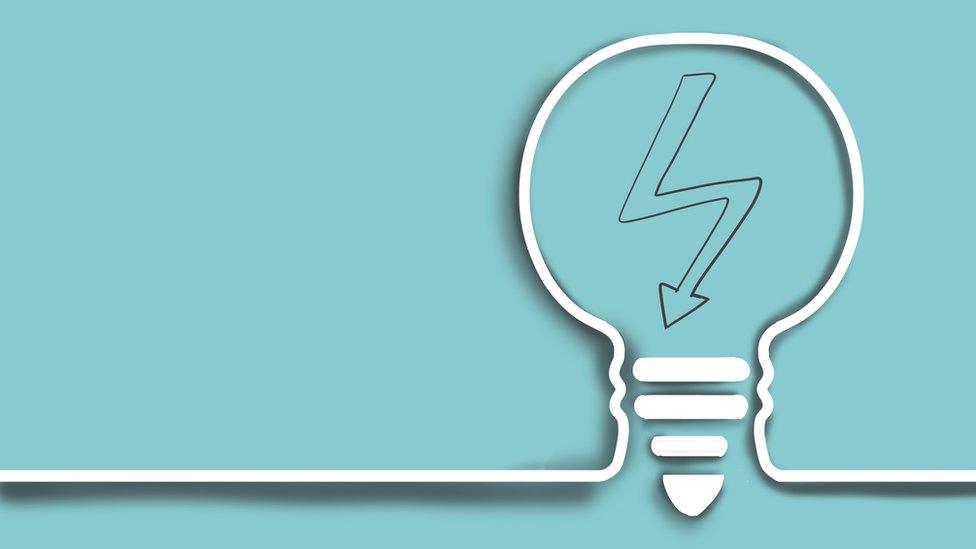
- Published23 September 2022

- Published30 August 2022
